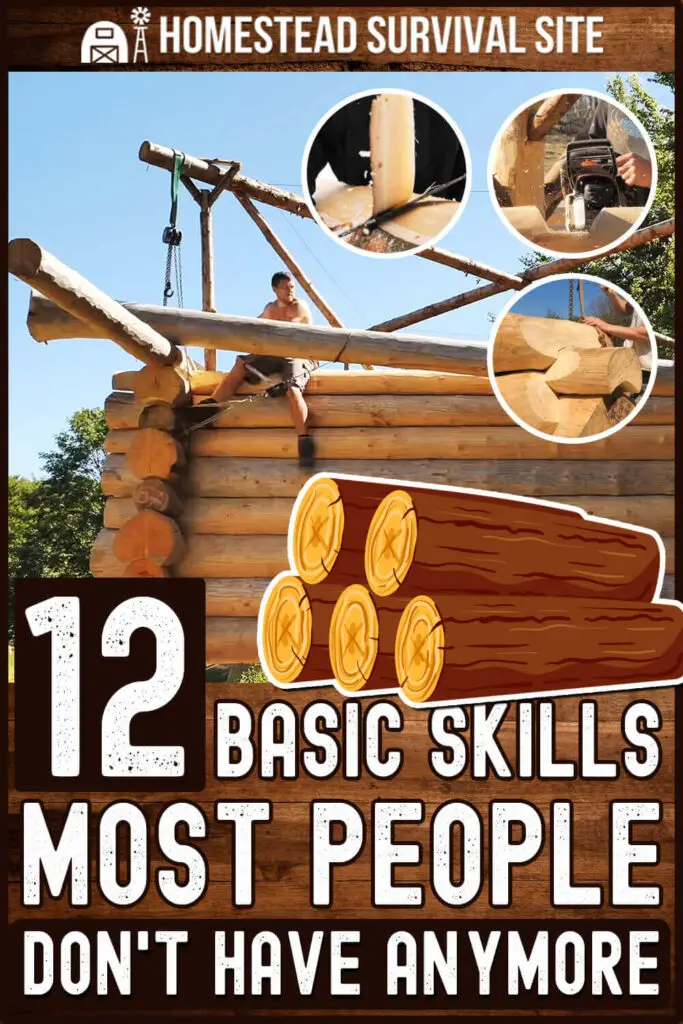[ad_1]
Estimated reading time: 10 minutes
Emergency preparedness, self-reliance, and what we call survival skills today used to be the way of life for most of the population.
While there are some groups of people today that live by the old ways, more and more the skills that are needed to do so are disappearing in exchange for dependency, comfort, and convenience. There are groups of people though that live off the grid or a simpler lifestyle in which the old way of doing things is still a part of their everyday life.
If most people are being honest with themselves, prepping and learning survival skills has become more of a hobby and an insurance policy. Many people do not practice the knowledge they have in the real world (hands-on experience) enough for it to become a skill.
Why is this important? Because of the same reason we all prepare. One day everything that has made our lives easier to live may go away, either deliberately taken away or just gone due to circumstance.
Let’s take a look at some skills that use to be commonplace that are now fading into the shadows among the majority of the population. Please note that some of the skills listed below may not be essential to your survival but knowing them could certainly make life easier and better.
Want to save this post for later? Click Here to Pin It On Pinterest!
1. How to Obtain Drinking Water
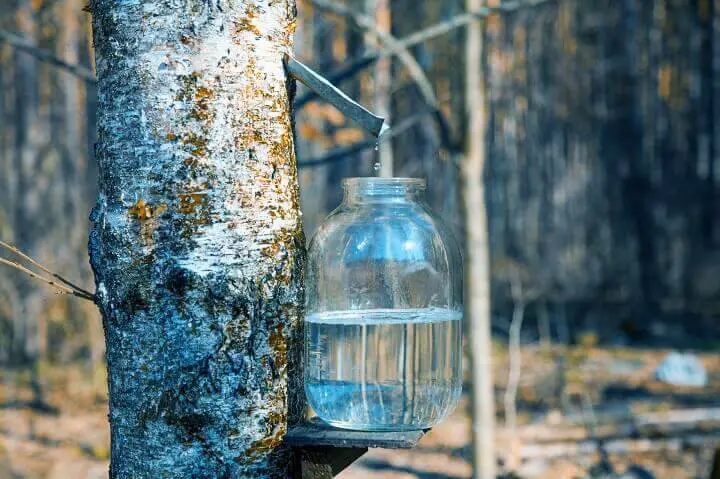
Finding water is not all that difficult if you are near a source such as a river or a lake, but we do not always have the luxury of being near such an obvious source. In that situation, a person will need to know how to obtain water from vegetation, know how to track water down, or know how to drill a well.
Finding water is only half the battle. It is equally important to know how to filter and purify water to make it safer to consume.
Click here for a short video on how to source and purify water in the wild.
2. Butchering
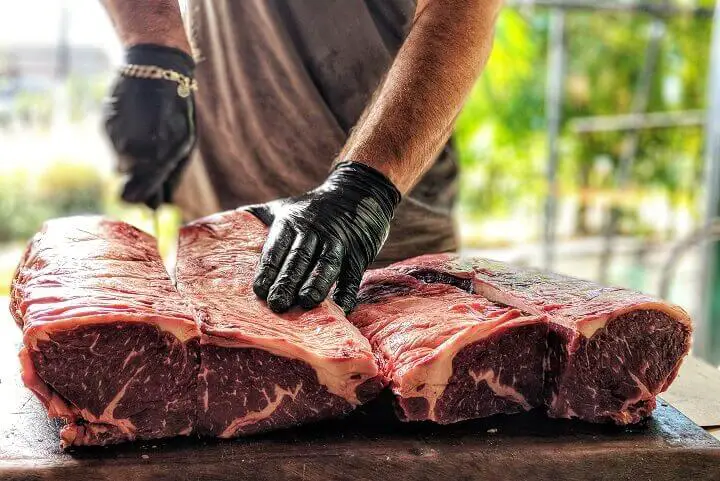
We all must eat but when it comes to mealtime nowadays, most of us opt for prepackaged meals or eating out at a restaurant. When was the last time you walked outside, picked up a chicken, and butchered it because you were hungry?
Of course, this does not just apply to butchering farm animals, but it also to gutting and preparing wild game or fish. Put simply, if a person eats meat, then it would be wise for them to know the entire process of bringing that meat to the table.
Click here for a short video on how to clean and prepare a fish for cooking.
3. Making Clothes
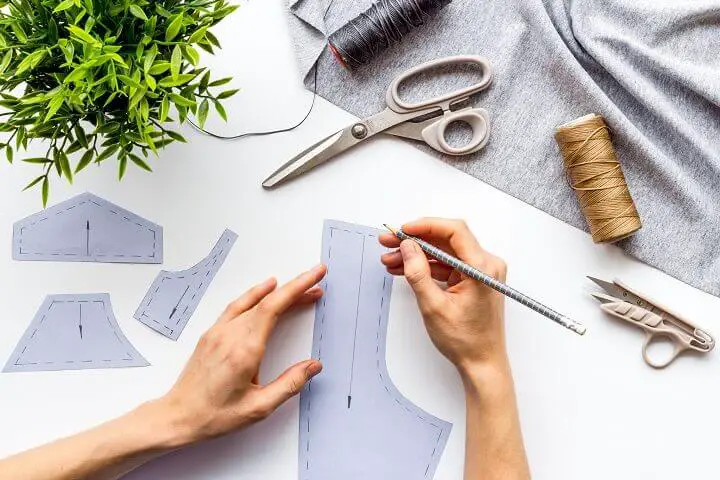
You don’t have to go that far back in time to find people that made their clothes. Back then, it was cheaper to make clothes rather than purchase them brand new, and to some degree, that is still true. Even if people didn’t make their wardrobe entirely from scratch, some of it was but more importantly, they knew how to do it when the need arose.
If you needed to, could you make basic clothing such as a shirt, pants, or socks? If not, start checking out some resources like this video that shows you how to get started.
4. Sewing
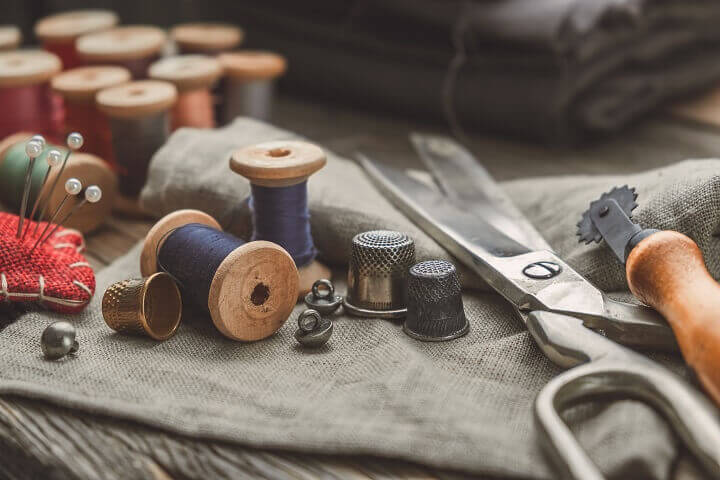
This one is like the skill previously mentioned but it is not as involved. Okay, so you may not make clothes completely from scratch, but can you repair an item if it becomes torn or has a hole in it?
Traditionally, sewing has been looked upon as feminine activity, but that shouldn’t stop you from learning. There have been plenty of men who were tailors as well as men that had to repair their clothing or gear while out on the trail.
Check out this link to see a basic sewing tutorial.
5. Building a Log Cabin
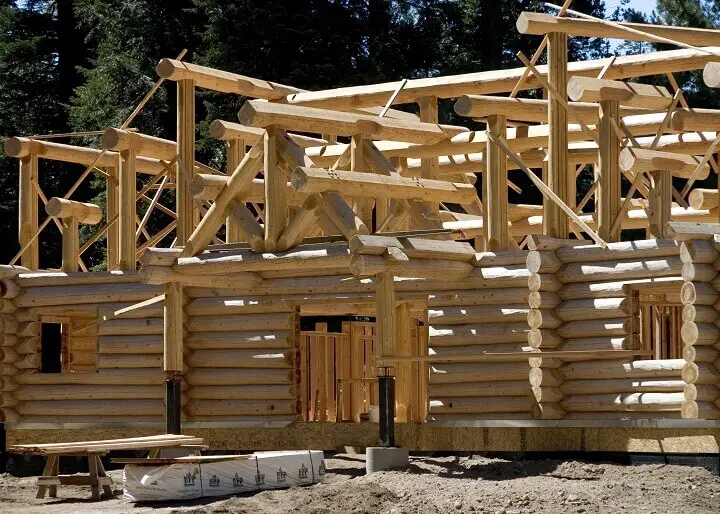
A shelter is important to our survival. It protects us from the elements, predators, insects, gives us a comfortable place to put our head down, and enhances our well-being by giving us a sense of home.
When thinking of a long-term shelter, a single-room log cabin is about as simple as it gets. To learn more about this process, click here for the first video in a series about building a log cabin.
6. Make Your Own Tools
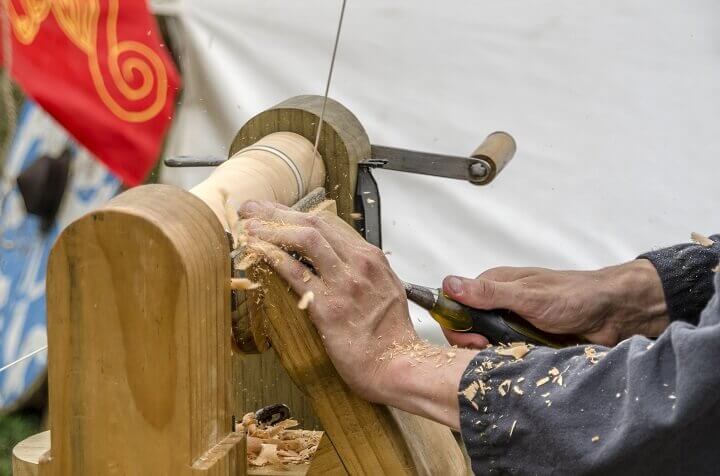
There is something very satisfying about fixing an item or taking on a building project. However, a person does need some tools to do so. But what if you could not go to a store and purchase them, what if your budget didn’t allow for it? You might be surprised at the kinds of tools you can make with limited resources.
To illustrate this point, here are two videos showing how to make a pole lathe and a wood shovel. Both are constructed with basic tools and without power.
7. Preserving Food
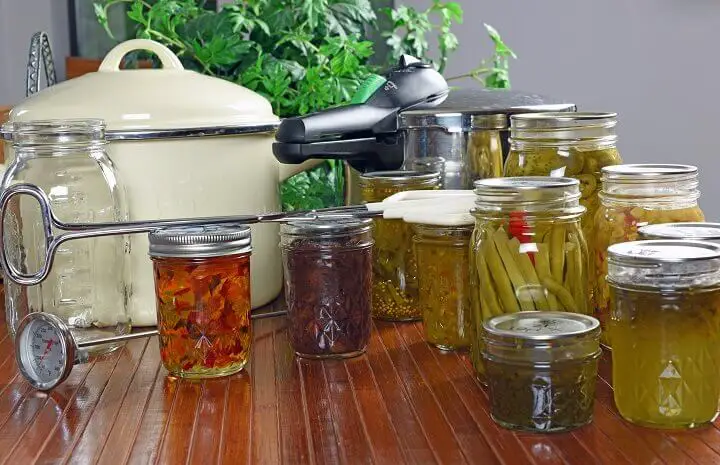
Most of us don’t think much about food preservation other than to put an item into the freezer. Food preservation doesn’t just rely on freezing though. Smoking, salting, canning, dehydration, and other methods have long been used to increase the shelf life of food
For a quick introduction into how to preserve meat by smoking, click here.
8. Starting a Fire
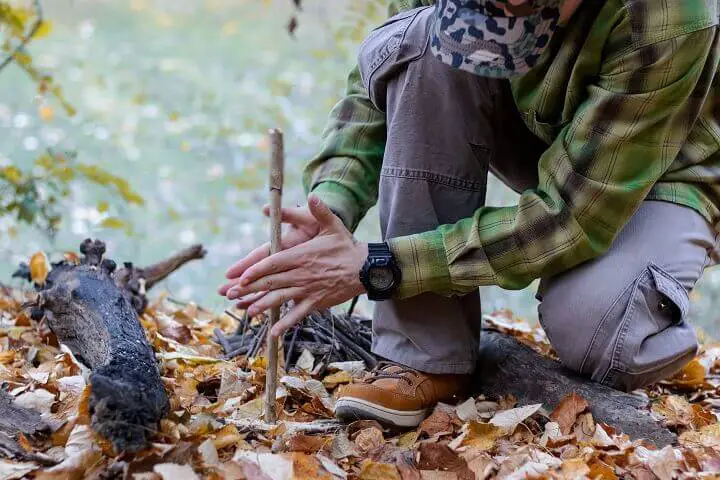
Almost everyone can start a fire in perfect conditions with a lighter. However, we all know that nature doesn’t always cooperate and something as convenient as a lighter may not be available. There are different kinds of environments with different resources and there are many kinds of ignition tools that can be used.
Challenge yourself by using different tools in unfair conditions and in environments that are out of your comfort zone. By practicing the above, you will be well versed in starting a fire in almost any situation.
To learn more about starting a fire without matches, click here.
For more information on how to start a fire in the rain, click here.
9. Identifying Plants and Trees
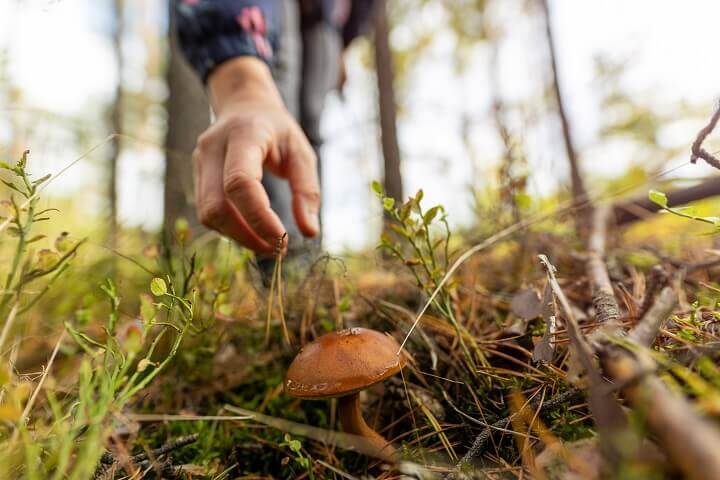
Nowadays, people struggle to identify plants or trees that are in their yard. Being able to identify plants and trees use to be a vital skill.
While some species are poisonous and are best kept at a distance, many others are incredibly useful. They can be used for making shelter, furniture, tools, clothing, medicine, and food.
Knowing what is useful and what is not in your surroundings is important and can certainly have an impact on your life. To learn more about identifying plants or trees, check out Midwest Foraging: 115 Wild and Flavorful Edibles from Burdock to Wild Peach or National Audubon Society Field Guide to North American Trees or A Field Guide to Trees and Shrubs
10. Navigation
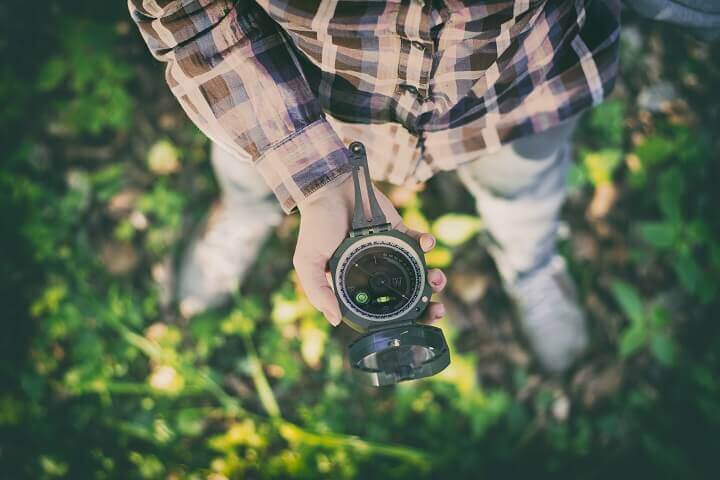
We are nearing the point where remembering how to navigate without GPS or modern technology is becoming increasingly difficult. With the push of a button we are told exactly how to get somewhere, the quickest route, the exact distance, and our position along the way.
Instead of relying on precise directions from a screen, there was a time when people were guided by the stars, the sun, rudimentary compasses, paper maps and even directions that were given by word of mouth.
Knowing how to navigate without modern technology isn’t just a hobby but it should be a skill that everyone learns. You never know when or where you might be when you find yourself without any power.
To learn more about navigational skills, check this book on Essential Wilderness Navigation.
11. Cordage, Ropes, and Knots
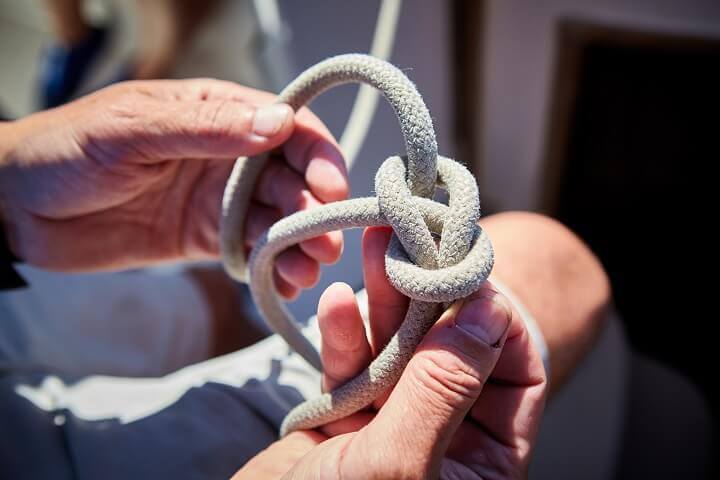
If you speak to any outdoorsman, farmer, or homesteader, they will tell you the importance of knowing a few good knots. Most people probably don’t get any more involved in knots than what it takes to tie a pair of shoes or to wrap a ribbon around a present.
But back in the day and for those still “living off the land or water,” knowing what type of knots to use depending on the task at hand and the cordage/rope being used, could determine success or disaster.
Knots enable us to secure loads, tow objects, lift or lower heavy items, rescue people, and they are used in all sorts of additional tasks.
To learn more about knots, check out Paracord Projects for Camping and Outdoor Survival or The Little Book of Incredibly Useful Knots.
12. Making Butter
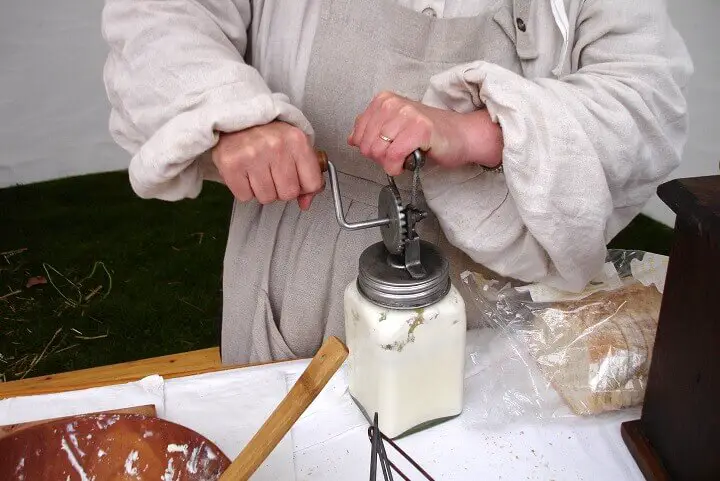
Knowing how to make butter may not be an essential skill to most people but butter has become a staple in most households. Butter is not only tasty but useful in cooking and it has other uses as well.
To learn more about making your own butter at home, check out this video.
Conclusion
It’s amazing to look back at the type of skills people used frequently and to compare them to how things are done today. Certain skills have changed in their methods and while some of them are fading into the background, others have found their way back into the spotlight.
In recent years, many “lost skills” have found their way back into the mainstream due to the rising popularity in prepping, homesteading, emergency preparedness, and people just wanting to be more self-reliant.
It’s fun to learn something new and if you are looking for a hobby or if you are just wanting to expand your knowledge base, try picking up one of the older skillsets listed in this article. It will help to keep that information from being forgotten and it will make you more self-reliant. Plus, you just may be able to brag about it amongst your friends and family.
What are some other skills that you don’t see around much anymore? Let us know by leaving a comment below. Thanks for reading and keep learning!
Like this post? Don’t Forget to Pin It On Pinterest!
You May Also Like:
You May Also Like:
[ad_2]
Source link
Get more stuff like this
in your inbox
Don't Be Left Unprepared
Thank you for subscribing.
Something went wrong.

